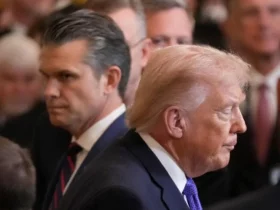Coronavirus
President Xi Jinping called a meeting of the Communist Party, where he said that the spread of deadly coronavirus is accelerating. It has already spread outside China, with cases of the contagion having been confirmed in the United States and Europe.
The discussion of the virus has caused a stir and been replicated throughout the media-sphere. The UN is warning of an impending global pandemic.
Conspiracy theories have already begun to spread as well.
However, it is worth noting that despite the media hysteria, the flu virus kills thousands of people every year in the US, and is rarely spoken about. It is rather suspicious that, although the virus is obviously a dangerous phenomenon, it has mostly been used to promote the anti-Chinese agenda, and to accuse Beijing of poorly handling the situation.
The Enver Altayli case
The most important event of the week for Turkey was the revelation of Enver Altayli’s ties to the CIA, which may become a new reason for confrontation between Ankara and Washington. A treasure trove of evidence was found on his computer, including his direct correspondence with the CIA, which refers to the creation of favorable conditions for a revolution in Turkey and strategies for FETO. Telephone records also revealed his contact with members of the Gulenist organization.
Ankara has long been trying to emphasize the relationship between the Gulenists and the CIA, suggesting they had worked together in plotting the July 15 failed coup attempt in Turkey. The demand for the extradition of Fethullah Gulen has become one of the central points of conflict between the United States and Turkey.
As UWI wrote earlier, the Altayli case is likely to be the last straw for Turkey when it comes to their already strained relationship with the United States.
Libya
The United Nations Support Mission in Libya (UNSMIL) accused a number of countries participating in the conference held in Berlin on 19 January 2020 of violating the arms embargo.
“This fragile truce is now threatened by the ongoing transfer of foreign fighters, weapons, ammunition and advanced systems to the parties by member states, including several who participated in the Berlin Conference,” the statement reads.
Meanwhile, despite such statements, the complex process of settlement continues, as evidenced by recent meetings with mediator countries such as Turkey and Russia. In addition, Turkey’s agreement with Libya continues to function. We discussed Turkey’s Mavi Vatan strategy in relationship to Libya in detail in an earlier article.
Iraq pushes to expel the US
An anti-American march against the presence of US forces in Iraq was held with huge success.
A huge crowd of people took to the streets of the Iraqi capital Baghdad to demand that US troops leave Iraq. Muqtada al-Sadr had previously called on a million people to join the protests. The event was largely triggered by assassination of IRGC General Qasem Suleimani on January 8.
Protestors wave Iraqi flags as well as posters condemning the American military presence. Protesters chanted “Death to America!” and some carried posters criticizing US President Donald Trump.
Earlier this month, Iraqi legislators passed a non-binding resolution urging foreign troops to leave the country. About 5,000 US soldiers are still present in Iraq, justifying their presence by saying their are there to fight ISIS.
In an earlier article, we discussed how Iran’s response to Suleimani’s assassination showed the US’ vulnerability in the region. The situation also serves as a warning to the Gulf States and Israel that the West’s presence in the region is now in question and that the attack has already led to some serious strategic changes – all parties must adjust their positions and make new calculations for the future.
The Soleimani assassination: the operation that broke the taboo
Lebanon
In Lebanon, mass demonstrations have begun against the new government.
Protests began in the streets of Lebanese cities after the announcement of the new Lebanese Government, led by Hassan Diab. Riots and clashes with police were reported in Beirut and Tripoli. The new Lebanese Government of 20 technocratic ministers led by Prime Minister Hassan Diab was officially announced at the Presidential Palace sometime earlier.
Last October, there were massive protests in Lebanon over the authorities’ intentions to raise taxes as well as introduce new ones, including taxes on the popular messaging service Whatsapp, which many were using to avoid the high cost of cellular communications.
As we discussed in an earlier article, as if by coincidence, a new escalation of protests began just when the US needed them most. The protests in Lebanon suspiciously coincided with those in Iraq and Iran itself. From a geopolitical point of view, the wave of protests is clearly aimed at destroying the Shiite axis in the Middle East and preventing Iran from freely projecting its power towards the Mediterranean.
The US and Israel are the main geopolitical beneficiaries of the chaos in Lebanon and Iraq.
Oil, money and Hezbollah: What is at stake in the protests in Lebanon?
Soros announces $1bn university network
George Soros has decided to create a ‘world university’ to fight against ‘authoritarian governments’ and climate change. He announced the new project at the World Economic Forum.
The billionaire noted that the Open Society University Network will not only become a global learning platform, it will also conduct research. The organization will be created in cooperation with Central European University (also supported by Soros) and Bard College in the US.
Given that Soros has long sponsored color revolutions and actively supported unnatural migration waves, the news is very alarming. It seems the billionaire is making his latest push to brainwash young people in regions across the world.
Migration Crisis on Four Fronts: George Soros and the ‘Great Replacement’
It should be recalled that in addition to the political agenda against unwanted “authoritarian regimes,” the Soros networks also promotes anti-family and transnational initiatives.
Gretacalypse now: Environmentalists destroy families and sell children into slavery

















Leave a Reply